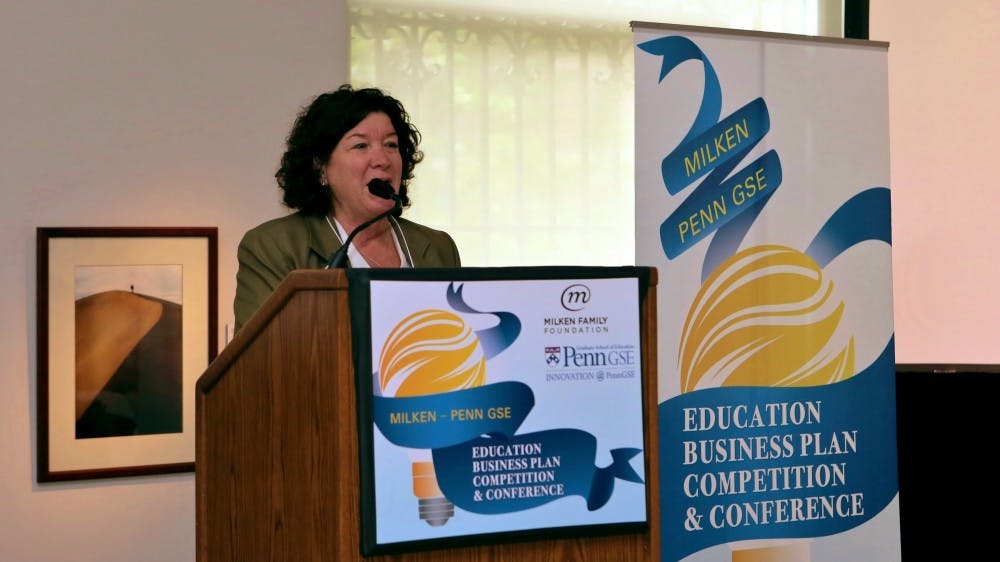
Executive Director of Academic Innovation and Senior Fellow at Penn GSE Bobbi Kurshan organized the Education Business Plan Competition.
Credit: Darryl W. Moran , Courtesy of Penn GSECreative thinkers from around the world have ideas for how to innovate education, and a few are bringing them to Penn’s Graduate School of Education.
The 20 finalists in the Milken-Penn GSE Education Business Plan Competition were announced April 10 with ideas like language learning apps and a peer-to-peer college admissions resource.
About 250 applicants were considered this year, but the finalists were whittled down to just 10 for the Idea Path and for the Venture Path.
This year the competition employed two paths for entry — Idea or Venture — since year after year the initial concepts entered were more fleshed out. In previous years, “It made it hard for people with really interesting ideas to go against people with more developed ideas,” Managing Director of Academic Innovation at GSE Brad Beshara said. Now, there are prizes for innovative concepts, as well as already established projects.
The initial judging is done by crowd sourcing. Judges from outside GSE — education practitioners, researchers and entrepreneurs — are all a part of the process to choose the finalists. They use an online platform where they can see the ideas and rate them.
“Different judges, depending on their background, are looking for different things,” Beshara said. Teachers, for example, might have an eye for really useful innovations for their classrooms and investors might be thinking about the marketability of the idea.
Education innovations in particular are important because of their social impact, Beshara said. “There are people that are drawn to investing in the education space,” he said, but added, “They want to have an impact socially, as well.”
An innovation called Osmosis won the $50,000 prize last year. Osmosis is an organizational study app designed for medical school students. The finalists are drawn from applicants from around the world — this year two of the finalists chosen for the Venture Path are international entries.
This sixth annual competition is backed by the Milken Family Foundation, a family of Penn graduates who devote much of their philanthropic work to innovation and education. The W.K. Kellog Foundation, McGraw-Hill Education and Microsoft are among the other sponsors.
The final competition and accompanying conference is by invitation only, but it is set to take place on May 12 and 13. Finalists will have the chance to pitch their ideas to the panel of judges.
The grand prize for the Venture Path is $40,000, with four additional winners receiving $20,000 each, and the Voter’s Choice will get $1,000. The Idea Path winner gets a grand prize of $10,000, and four additional winners receive $2,000 each.
The Daily Pennsylvanian is an independent, student-run newspaper. Please consider making a donation to support the coverage that shapes the University. Your generosity ensures a future of strong journalism at Penn.
DonatePlease note All comments are eligible for publication in The Daily Pennsylvanian.








